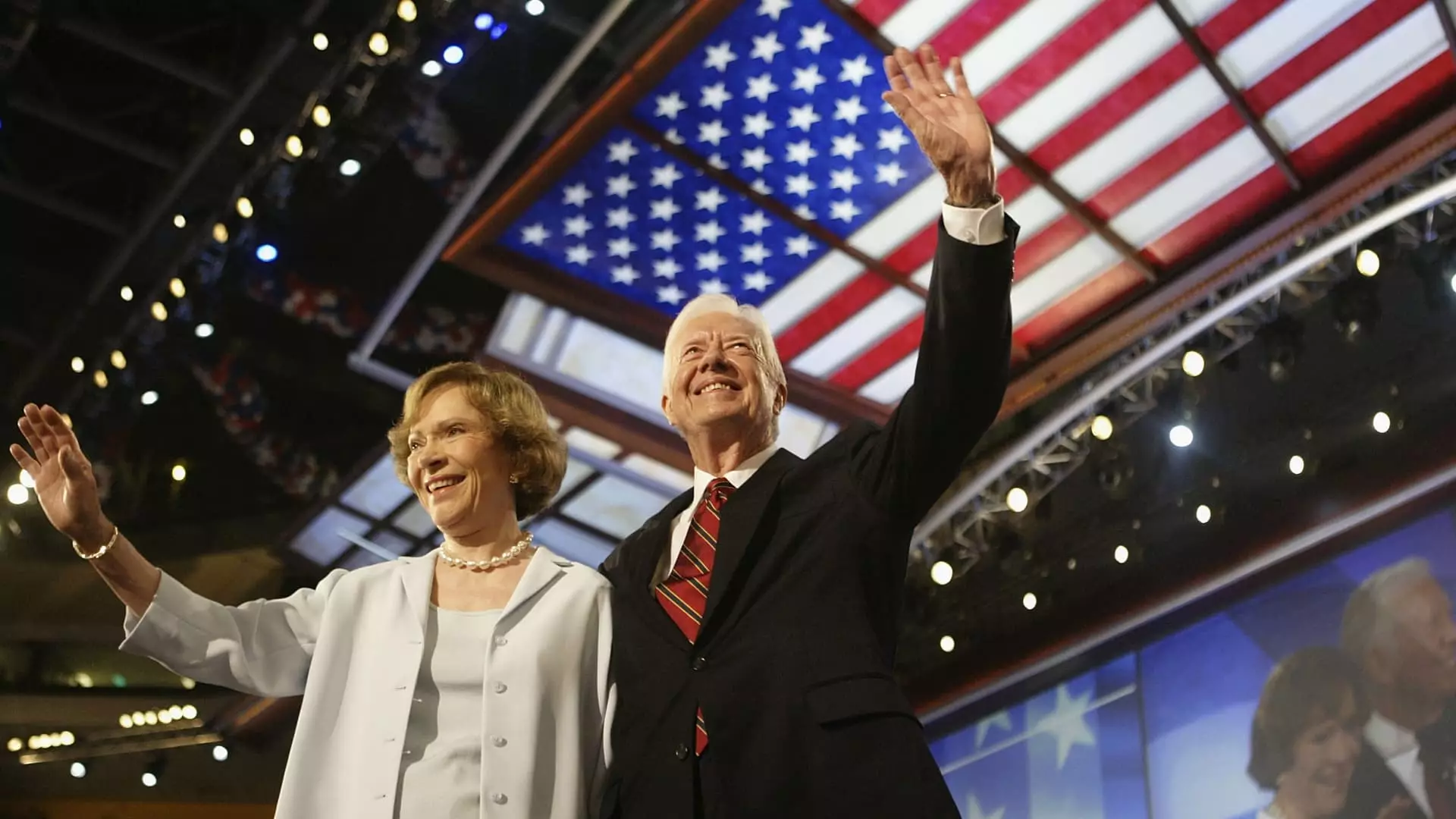The unexpected passing of former President Jimmy Carter has elicited a flood of tributes from leaders across the political landscape in the United States. This outpouring of affection and respect underscores the indelible mark that Carter left not only during his presidency but also in the years that followed. Carter, who served as the 39th president from 1977 until 1981, was a paragon of humility and service, and his legacy is expected to resonate for generations to come.
Carter’s death prompted immediate responses from both Democratic and Republican leaders, a rare occurrence in today’s charged political climate. Senate Majority Leader Chuck Schumer (D-N.Y.) emphasized the former president’s impact on American society. His words encapsulated a broader sentiment: “Carter’s faith in the American people and belief in the power of kindness and humility leave a strong legacy.” This reflection not only celebrates Carter’s character but also serves as a reminder of the potential for unity in service.
On the flip side, outgoing Senate Minority Leader Mitch McConnell (R-Ky.) provided a poignant tribute as well. He remarked on Carter’s roots and unwavering commitment to community service, symbolically likening it to the fruits of “all-American soil.” This metaphor not only captures the essence of Carter’s lifelong devotion to his home state of Georgia but also paints a vivid picture of an individual who remained grounded despite his national accomplishments.
While his presidency is often scrutinized for economic challenges and foreign policy crises, it is in the years post-office that Carter truly etched his legacy in the annals of humanitarian work. His establishment of the Carter Center fostered a commitment to human rights and global health initiatives—efforts that extended well beyond American borders. His post-presidency phase has become a blueprint for future leaders on how to leverage platform and experience for greater humanitarian causes.
Former President Bill Clinton and former Secretary of State Hillary Clinton also paid tribute, emphasizing their pride in supporting Carter during his presidential campaign. This acknowledgment not only demonstrates the long-lasting relationships formed in politics but also highlights the mutual respect that transcends party lines.
Tributes poured in from across the aisle as House leaders commemorated Carter’s “lifetime of service.” Figures like House Majority Leader Steve Scalise (R-La.) and Democratic Leader Hakeem Jeffries (D-N.Y.) made clear their admiration for Carter as a role model, showcasing how his example can unify differing political viewpoints. Senator Mark Warner (D-Va.) and Senator Andy Kim (D-N.J.) echoed these sentiments, reflecting on how Carter’s life symbolizes a model of public service and dedication to human rights.
One of Carter’s most notable post-presidential commitments was with Habitat for Humanity, where he actively participated in building homes for those in need. His hands-on approach exemplified his belief that true leadership involves serving the people. Senator Mike Lee (R-Utah) noted that Carter’s humanitarian endeavors would leave a poignant legacy that speaks to his Christian faith and deep commitment to humanity.
Carter’s faith was not only central to his personal life but also integral to his public persona. For decades, he taught Sunday school in Plains, Georgia, sharing his beliefs with a devoted community. This dedication to sharing his faith reinforces the idea that leaders must embody the values they espouse. In today’s political realm, where partisanship often complicates shared values, Carter stood as an example of how faith can serve as a unifying force.
Senator Chuck Grassley (R-Iowa) remarked on the common ground shared by Carter and colleagues, emphasizing their mutual love for the Lord. Such statements serve as a reminder of how shared values can foster connections, even amidst political differences.
As the nation mourns the passing of Jimmy Carter, it is important to recognize the broad spectrum of his influence. His life and work exemplified compassion, humility, and a deep commitment to the betterment of humanity. In an era where political leaders often become embroiled in controversies and scandals, Carter’s life reminds us of the profound impact one individual can have through a continuous lifetime of service.
From his early career as a peanut farmer and naval officer to his presidency and eventual role as a humanitarian, Jimmy Carter’s narrative is one of resilience, service, and a profound belief in the goodness of people. As reflections continue to shape our understanding of his legacy, it’s clear that Carter will be remembered as a giant not just in American politics, but also in the realm of human rights and societal compassion.


Leave a Reply